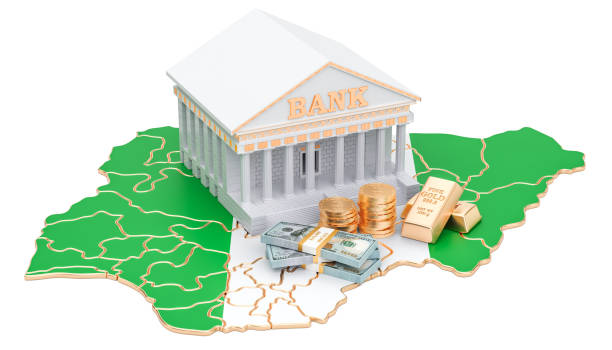Analysis by Prime Business Africa has shed light on Nigeria’s struggle to achieve its $1 trillion economy goal amidst the forex exchange market turmoil and the naira’s persistent weakness.
The devaluation of the naira has resulted in $193 billion loss in the country’s GDP when converted from naira to dollar, highlighting the detrimental impact of currency fluctuations on economic output.
Join our WhatsApp ChannelDespite Nigeria’s recorded growth in naira terms, which reached a peak of N62.05 trillion in Q3 2023, the nation has faced depreciation of up to 40% in its currency’s value throughout the year. This instability raises concerns about Nigeria’s economic trajectory.
Comparatively, South Africa, Nigeria’s closest competitor in terms of GDP within Africa, has seen a milder decline in its currency, with a 15% devaluation. However, Nigeria still holds the position of Africa’s leading economy, with its GDP surpassing South Africa’s when measured in U.S. dollars.
READ ALSO: How Tinubu’s Naira Floatation Makes Ordinary Nigerians Forex Experts
Yet, Nigeria’s current economic landscape faces significant challenges. With the naira needing to depreciate to approximately N900/$1 for its GDP to fall below South Africa’s when measured in dollars, the country grapples with the ongoing currency volatility, impacting its aspirations of achieving a $1 trillion economy by 2026.
The Nigerian Federal Government’s projection outlined in the Medium-Term Expenditure Framework and Fiscal Strategy Paper (MTEF/FSP) for 2024-2026 aims for a GDP of N292.52 trillion, projecting a GDP of $436.73 billion by 2026—far from its $1 trillion ambition.
Economists propose the potential re-basing of Nigeria’s economy to more accurately reflect its true size, considering evolving sectors such as healthcare, real estate, fintech, and trade, which could potentially boost GDP figures.
In June 2023, the Central Bank of Nigeria’s move to unify the forex market segments aimed to enhance liquidity and stability but contributed to further market instability.
President Bola Tinubu’s target of growing the economy to $1 trillion by 2026 and $3 trillion by 2030 emphasizes Nigeria’s commitment to economic growth. Tinubu also reassured stakeholders regarding the government’s handling of foreign exchange matters.
The CBN’s efforts, including clearing backlog foreign exchange forward obligations and implementing new frameworks, aim to address forex issues, hoping to stabilize the naira against the dollar and bolster Nigeria’s GDP in dollar terms.
However, the current macroeconomic conditions, coupled with the need for significant economic growth and stability in the exchange rate, challenge Nigeria’s ability to reach its ambitious economic milestone within the projected timeline.
Emmanuel Ochayi is a journalist. He is a graduate of the University of Lagos, School of first choice and the nations pride. Emmanuel is keen on exploring writing angles in different areas, including Business, climate change, politics, Education, and others.


















Follow Us